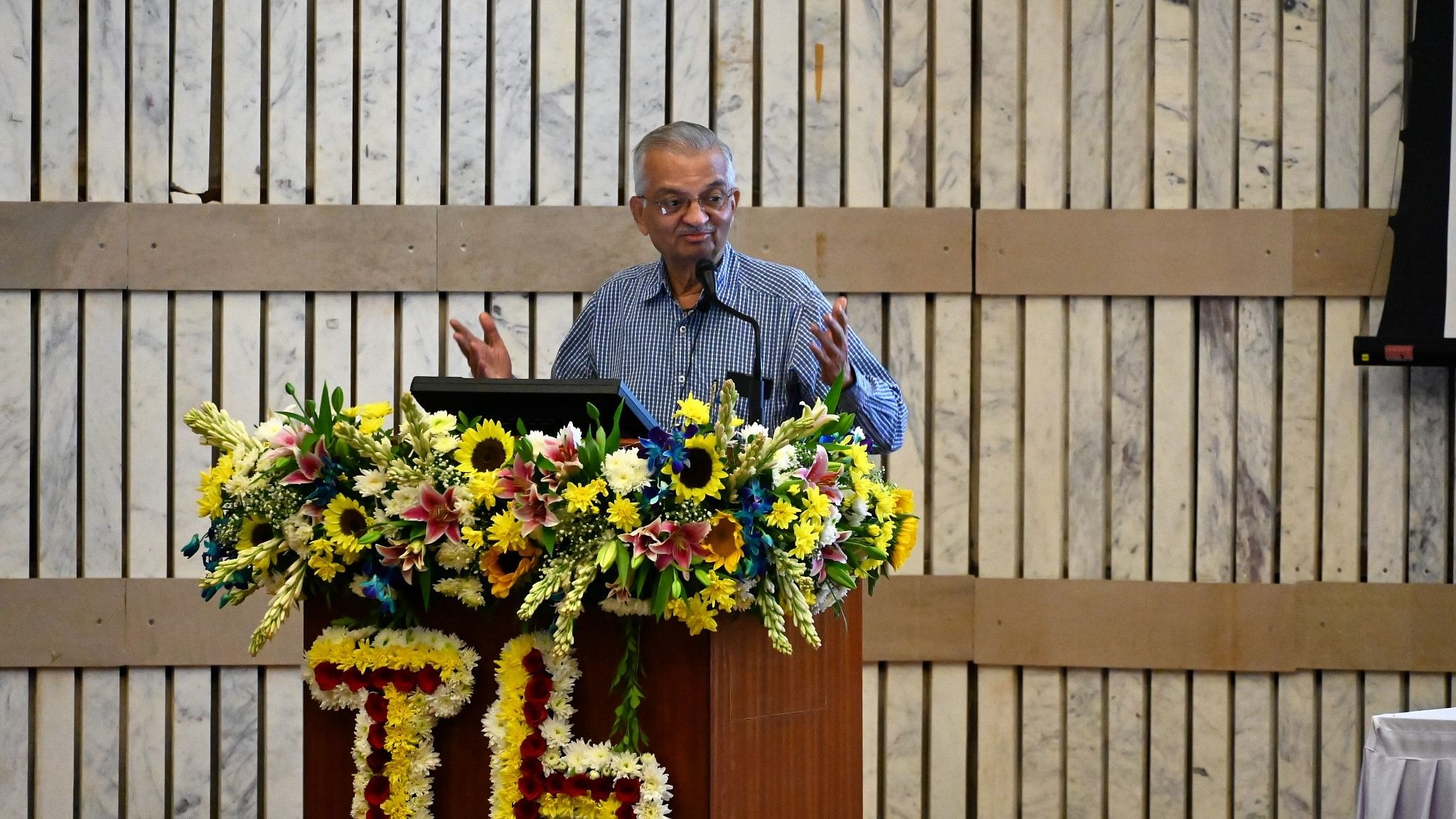
Nuclear scientist Dr Anil Kakodkar.
Credit: X/@DAEIndia
Mumbai: Rapid deployment of nuclear capacity in India can address the dual challenge of meeting development aspirations on one side and enabling timely net-zero on the other, according to veteran nuclear scientist Dr Anil Kakodkar, the former Chairman of Atomic Energy Commission (AEC).
“It can be a game changer to achieve the aspirations of being developed country,” Kakodkar said on the occasion of National Science Day and unveiling a book - Climate Change, Clean Energy Transition, Energy Options, and Relevance of Nuclear Power - curated by the authors Prof Arun Nayak, Dr Samyak Munot and Prof Jyeshtharaj Joshi.
The book highlights and recognises the limitations of renewable energy sources in meeting India's burgeoning energy needs and the future role of nuclear power for mitigating the adverse impact of climate change and global warming. It emphasises that nuclear power can play a vital role as a clean, green, safe and sustainable option for meeting the long term electricity demands of the country.
The top brass of the nuclear sector including Dr. A K Mohanty, Secretary, Department of Atomic Energy and Chairman, Atomic Energy Commission, Vivek Bhasin, Director, Bhabha Atomic Research Centre and Dr. V K Saraswat, Member, Niti-Aayog, S S Bajaj, former Chairman, Atomic Energy Regulatory Board, Prof M M Sharma, Emeritus Professor, Institute of Chemical Technology, Mumbai were present during the event.
Prof Nayak emphasised that Small Modular Reactors (SMRs) will drive a faster energy transition by repurposing the retired coal plants and replacing the coal based captive powerplants. The country is expected to deploy several hundred of these reactors, and hence it is expected that the cost will be competitive to that of conventional energy sources, including renewables.
Prof Joshi acknowledged that India’s industry has to transform from a service-dominated sector to a core engineering-dominated sector meaning, we need to shift from being a global importer to a global supplier.
Dr Munot highlighted that the youth hold the key to unlocking nuclear energy's potential for both national energy security and combating climate change.